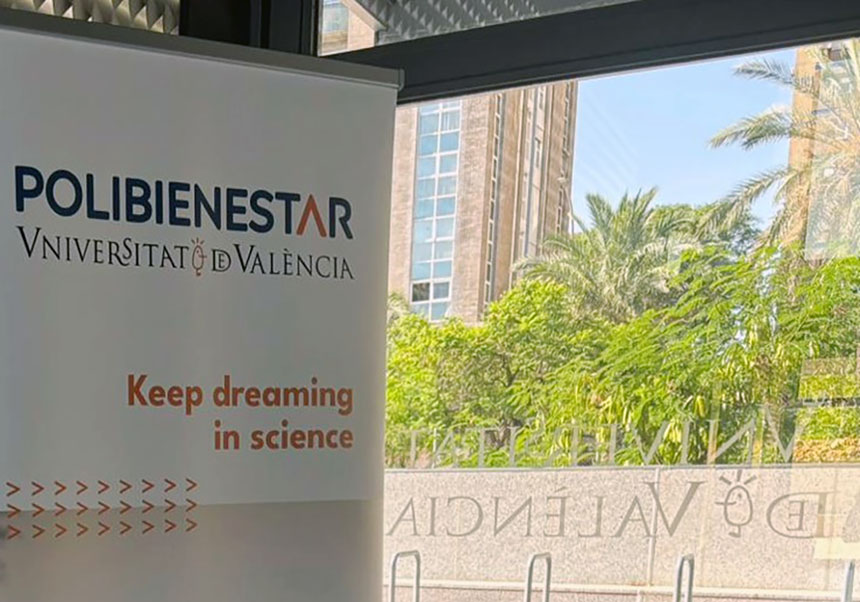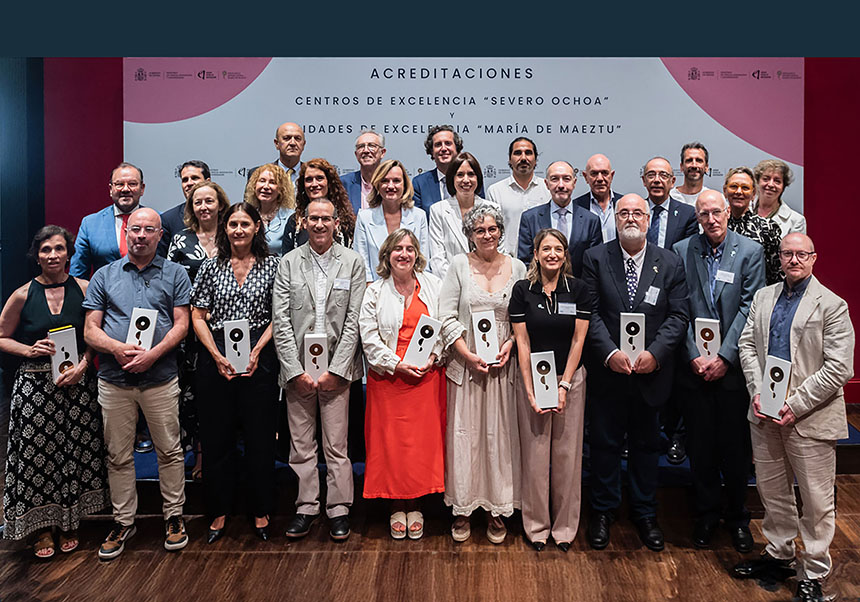Specialists have gathered at the IFIC to address the challenge of a huge increase of LHC data
- June 9th, 2017

More than a hundred of specialists over the world have gathered in the ATLAS Sotfware & Computing Week, an event organised by the Institute of Corpuscular Physics from 12 to 16 June. The aim is to address the challenge of distributing, storing and processing a huge amount of LCH data from CERN. The IFIC participates in this global infrastructure of information technology distributed since 2001. This provides with the half of the resources that Spain gives for the data of the ATLAS experiment.
Taking the big data provided by the LHC of CERN in the next years into account, more than a hundred of specialists over the world have gathered at the ATLAS Sotfware & Computing Week. It is an event organised by the Institute of Corpuscular Physics (IFIC, CSIC-UV) from 12 to 16 June in which they address the challenge of distributing, storing and processing the huge amount of information created by the biggest particle accelerator all over the world. The IFIC participates in this global infrastructure of information technology distributed since 2001. This provides with the half of the resources that Spain gives for the data of the ATLAS experiment.
This meeting is held in Valencia and it means that IFIC is highly important in the GRID of ATLAS, one of the two big LHC detectors in which Higgs boson was discovered in 2012. The discoveries in particle physics are based on statistics: it consists of analysing the events occurred in the collisions with the aim of detecting some changes or diversions in the patterns stablished by the theories that describe the particles that constitutes the matter and the interactions that manage them. When the changes are ‘statistically significant’, it is possible to confirm that we are facing a new phenomenon.
All this process involves huge amounts of data. The LHC obtained 6,5 million of collisions in 2016 (one billion per second), from which their experiments only register the most interesting ones. However, it is expected to compile 50 petabytes (PB) of data in 2017. This is the equivalent to 15 million high definition films. This huge amount of data comes from the computer centre of CERN in order to be distributed in more than 170 centres all over the world, where the data is stored and available for those research groups that require this data for their analysis in search for ‘new physics’.
On the verge of finishing the second cycle of LHC operation, the Run 2 (2015-2016), the groups that manage the GRID are ready for the huge amount of data of the next cycle (2021-2023) where the CERN accelerator will function to its limits in terms of energy and brightness. This will be one of the topics to be addressed in the ATLAS Software & Computing Week. Around 125 participants of 130 research centres will take part in this ATLAS experiment in Europe, Russia, China, Japan, Australia, Canada and United States. Among them, it is important to highlight the following: Simone Campana and Torre Wenaus, people in charge of the information technology provided by ATLAS.
The GRID also starts to be ready for something new, the so-called high luminosity LHC, that will increase ten times the luminosity of the accelerator in 2025 (measure of the number of collisions). An authentic avalanche of information that GRID must manage. This is another key aspect to be addressed in the meeting held in Valencia: the planning of the GRID resources to face the HL-LHC. The organisers of the congress estimate in at least a 50% more the resources of information technology that are needed in 2025, another challenge for the biggest particle accelerator in the world.
The IFIC is part of the computer network GRID Tier-2 ATLAS Spain since 2011, storing and processing data of the ATLAS experiment. Nowadays, its resources of information technology are half of the Spanish contribution to the GRID network of ATLAS, a 5% of the total at an international level (60 centres). Apart from this information, the IFIC group that participates in the ATLAS information technology have headed the EVENT Index project to improve the access to the data stored in the GRID, a system that will also be adapted to the high luminosity LHC. With this contribution, the IFIC is consolidate as a specialised centre in Big Data. Furthermore, the IFIC collaborates with Moroccan universities in order to set up the second centre of information technology GRID for the ATLAS in Africa.
ATLAS Software & Computing Week starts this Monday 12 June at 14:00h with an opening ceremony in which participate the Vice-Principal for Research of the Universitat de València, Pilar Campins, and the director of the Institute of Corpuscular Physics, Juan José Hernández Rey.
More information: http://wlcg-public.web.cern.ch/
File in: Recerca, innovació i transferència , Institut de Física Corpuscular (IFIC) , Vicerectorat d'Investigació
















